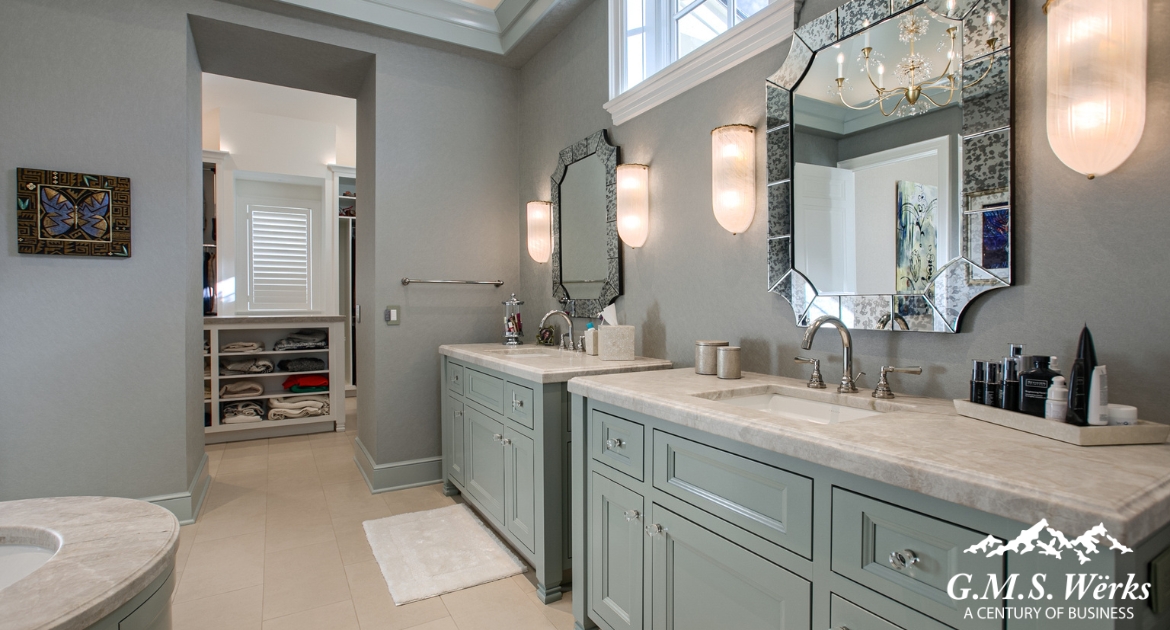-
4225 Florence Blvd
-
Appointments Recommended
Mon - Fri: 8:00am - 4:00pm
-
Schedule Your Appointment:
(402) 451-3400 - Request Quote
Mon - Fri: 8:00am - 4:00pm

When it comes to selecting the perfect material for countertops, vanities, and other home features, marble is often at the top of the list. Known for its timeless beauty, versatility, and luxury, marble can elevate any space. However, there are two main types of marble to choose from: natural marble and man-made marble. Both have their unique qualities, and understanding the differences between them is crucial for making an informed decision about your home. In this blog, we’ll break down the aesthetic appeal, durability, and maintenance of both to help you choose the best marble for your project.
One of the most significant factors in choosing marble is its aesthetic appeal. Natural marble is prized for its unique veining and patterns, making each piece one of a kind. The natural variation in color and texture is what gives natural marble its luxurious, bespoke appeal. Whether it's the classic white Carrara marble or a deep, rich Calacatta marble, the natural stone provides an unmatched elegance that can’t be replicated.
On the other hand, man-made marble, or engineered stone, is created by combining natural marble chips with resins and polymers. While it can mimic the appearance of natural marble, it typically lacks the same depth and natural variation. Some may prefer the uniformity of man-made marble for a more modern, clean aesthetic. While it can be made to look like natural stone, it won't have the unique, veined patterns that come with authentic marble, making it more consistent in appearance.
When it comes to durability, natural marble is softer and more prone to scratching compared to man-made marble. Natural marble is a calcium carbonate-based stone, which means it can be easily scratched or etched by acids, such as lemon juice or vinegar. Additionally, while natural marble is heat-resistant, it can be damaged by prolonged exposure to high heat. For high-traffic areas like kitchens, natural marble may require extra care to maintain its pristine look over time.
On the other hand, man-made marble is often more durable because it is mixed with resins that help it resist scratches, stains, and heat better than natural marble. This makes it a better option for homeowners who need something more resilient in high-use spaces like kitchens and bathrooms. Man-made marble is also less likely to chip or crack under heavy use, providing more peace of mind in terms of maintenance.
In terms of maintenance, natural marble requires more attention than man-made marble. Because of its porous nature, natural marble is more prone to staining from oil, wine, and other substances. To keep it looking its best, natural marble countertops need to be regularly sealed to protect them from spills and moisture. Even with sealing, it’s essential to clean up spills quickly to prevent staining and etching.
In contrast, man-made marble generally requires less maintenance. Since it's non-porous and more resistant to stains, you don’t have to worry about frequent sealing. It's also easier to clean with mild soap and water. However, man-made marble can still suffer from scratching or fading if not properly cared for, though it’s more forgiving than natural marble.
Choosing between natural marble and man-made marble depends on your priorities. If you love the idea of having a unique, luxurious surface with timeless appeal, natural marble might be the right choice. However, if you’re looking for something more practical and low-maintenance, man-made marble offers a durable alternative.
At GMS Werks, we specialize in providing high-quality natural stone countertops and are happy to help you choose the right material for your project. Whether you choose granite, marble, or quartzite, we’ll work with you to create a stunning and functional design. Contact us today to learn more about how we can bring your vision to life with beautiful, durable natural stone!